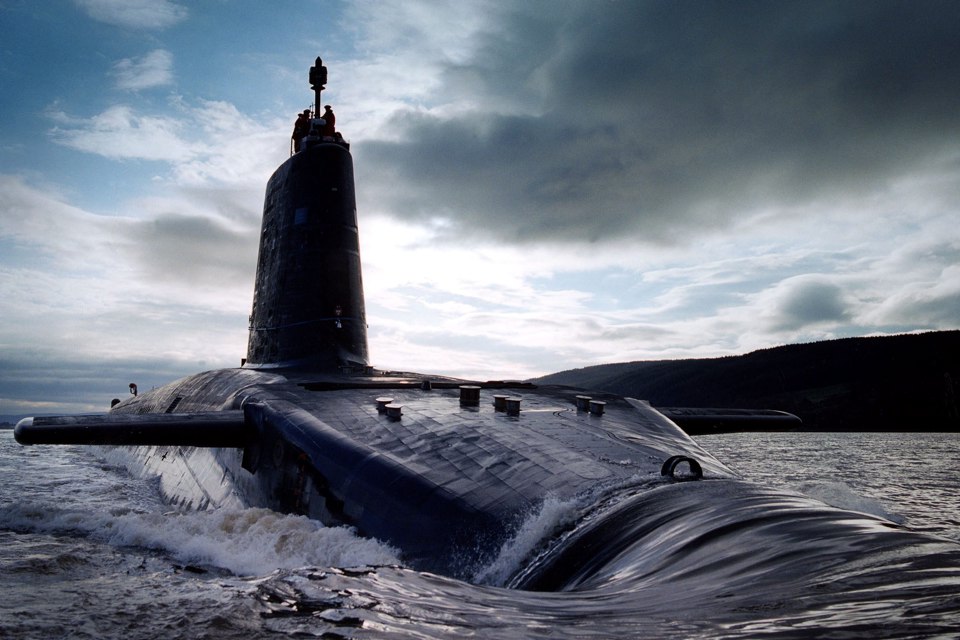Defence Secretary Michael Fallon: Keeping Our Future Afloat Campaign
The Defence Secretary affirmed the Government's commitment to the Successor submarine programme at a reception in the House of Commons today.

[Check against delivery]
My first speech as Defence Secretary was at this event last year and I’m delighted to be back.
And to see many familiar faces united by a belief in the value of our shipbuilding industry and the importance of our deterrent.
This great capability is kept afloat by people whether operating above or beneath the oceans, whether procuring our ships and submarines, or whether maintaining them at peak performance.
Thank you all for what you’re doing to keep our country safe.
For our part, we’ve committed to building four successor ballistic missile submarines to replace the four Vanguard boats and retain the continuous at sea nuclear deterrent patrols.
And not a moment too soon.
Cold war certainties have been replaced by an unpredictable new nuclear age defined by weapons proliferation, more nuclear states, and rogue nations wanting nuclear weapons and the technology to develop them.
An expansionist Russia is commissioning a new class of eight ballistic missile submarines. We’ve watched North Korea carry out nuclear tests and ballistic missiles tests.
When there are 17,000 nuclear weapons in the world we can’t wish away threats that may emerge in the 2030s, 2040s, and 2050s.
As the threats multiply, two risks to our delivery remain.
First, the prospect of the collective resolve that has sustained our deterrent for 60 years weakening.
In recent weeks we’ve heard worrying challenges to the nuclear consensus.
The Government’s first duty is protection of the UK and we know complacency is the enemy of security.
There has been a consensus by governments of all colours for over 60 years. It was Attlee and Bevin who argued for a nuclear deterrent with ‘a Union Jack’ on the top of it.
Former NATO Secretary-General Lord Robertson and others – including John Woodcock who we heard from earlier - champion it.
Today I appeal to all moderate MPs, to put our national security first and to support building four new Trident submarines.
I want to ensure that Parliament will stand full square behind the deterrent as they did in the votes in January this year and back in 2007.
That needs us restate the case for this industry and the value of the deterrent – making the arguments to people who may be hearing them for the first time.
The case is three-fold:
First and foremost, it’s about deterrence.
It is not designed to stop a 9/11 type tragedy – its purpose is to deter state-sponsored terror and to counter nuclear blackmail.
Those threats have not gone away.
Just as we didn’t predict the rise of a revanchist Russia it would be folly to assume that nuclear danger will disappear in 2030s, 2040s, or 2050s. The UK must have a credible, operationally independent, continuous-at-sea deterrent.
Secondly, it’s about realism.
Our challenge is to create the conditions where nuclear weapons are no longer considered essential for our security or that of our NATO allies.
Yet despite taking our nuclear non-proliferation obligations seriously; despite reducing our stockpile by over half from the height of the cold war; and despite reducing the number of deployed warheads on each submarine from 48 to 40, emerging states have not stopped seeking nuclear capability.
Thirdly, it’s about reinforcing our supply chain.
From Barrow to Berkshire, from the North of Scotland to the South of England thousands owe their livelihoods to this industry.
Let’s be clear about the scale of this undertaking.
Building four 16,000 tonnes submarines is a national endeavour. It is a project that is around nearly twice the budget of Crossrail. It is around three times the budget of the London Olympics.
Spread across the 30 year life of the new boats, this represents an annual insurance premium of around 0.13 per cent of total Government spending.
And we get a lot out for what we put in.
I was struck by a map I saw at the party conference showing companies, large and small, criss-crossing the country, which I see is on display here.
Yet our investment does more than support our supply chain.
It strengthens our world-class advanced manufacturing skills base by keeping our Royal Navy at the cutting edge and inspiring the future brains of Britain - the next generation of engineers, technicians, software developers and designers.
But what of the other risk to our deterrent?
The prospect of industry failing to deliver.
For 46 years our deterrent has been used every day to keep Britain safe. If we are to continue that there is no room for delay.
Be in no doubt – our new conventional submarines are late but our new ballistic submarines can’t be.
There can be …no failure to meet build times …no overrunning costs …no excuses.
Our adversaries are certainly not going to wait
So our shipbuilding industry and our deterrent have never been more vital.
We’ve committed to this programme and now we must press on.
That requires nationwide effort. Politicians, unions, and the business community putting aside politics in the national interest.
Let’s work together to strengthen the consensus, to strengthen our industry and to deliver not just world-class submarines but the security and prosperity that follow in their wake.